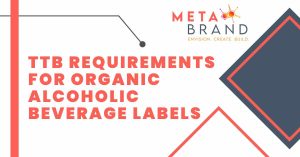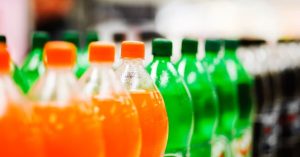Key Takeaways:
-
- Halal certification ensures beverages comply with Islamic dietary laws, making them suitable for Muslim consumption.
-
- Ingredient compliance and the entire production process must adhere to Islamic dietary standards to achieve Halal certification.
-
- Obtaining Halal certification can be challenging due to common misconceptions and complex international regulations.
-
- Successfully navigating Halal certification is achievable with diligent research and a dedication to Islamic dietary laws.
As you stand in the beverage aisle of your local grocery store, preparing for an upcoming party, ensuring all guests are accommodated – including those following Islamic dietary laws – becomes paramount.
You might wonder how to ensure the drinks you choose are Halal-certified. It’s not just about avoiding Haram ingredients like alcohol or pork derivatives; the production process, including the equipment used, plays a significant role.
Surprisingly, even some energy drinks have achieved Halal certification.
This post will guide you on how companies obtain Halal certification for beverages – from ingredient sourcing to addressing common misconceptions about Halal foods.
For businesses looking to navigate the complexities of beverage formulation and Halal certification, our beverage formulation services offer expert guidance and support throughout the process.
The Halal Certification Process For Beverages
Securing Halal certification for beverages goes beyond simply following a recipe. It requires meticulous attention to ingredient compliance and production facility standards.
Ingredient Compliance in Halal Certification
Halal certification starts with ensuring all ingredients adhere to Islamic dietary laws. Ingredients like grape juice or those containing ascorbic acid must be Halal-certified.
Contrary to some beliefs, not all fruits are automatically Halal; beverages like orange grapefruit blend or wild berry mix must be scrutinized for non-Halal additives such as citric acid.
This is also true for energy drinks, where certain ingredients might necessitate Halal certification due to their processing.
Production Facility Standards for Halal Certification
The journey continues at the production facilities, the backbone of the beverage industry.
Agencies assess whether these locations comply with Halal standards. This involves more than just cleanliness; it includes ensuring that the production of different types of beverages, like lemon-lime soda and cream soda, adheres to Halal rules even when produced in the same plant.
Whether it’s a refreshing sparkling water or a flavorful raspberry drink, each product must undergo a rigorous certification process. This detailed procedure guarantees that every Halal-certified beverage meets Islamic dietary standards.
Adherence to Dietary Laws
Adhering to Islamic dietary laws is not merely a procedural step; it embodies trust and transparency.
This commitment is particularly crucial for products like alcoholic beverages, which often face scrutiny regarding their Halal status due to production methods and ingredients.
Understanding these nuances is vital as they significantly influence the certification process.
The Role of Ingredients in Adherence
Every ingredient in beverages, from energy drinks to juices, must comply with Halal dietary laws.
Even substances that might seem inherently Halal, like citric acid, require verification to ensure they meet these standards. This thorough scrutiny confirms that each aspect of the beverage is compliant before it receives proper certification.
Navigating Through Production Processes
Consider the example of a black cherry sparkling water. While fruit flavors are often presumed to be Halal, they must be produced in facilities that prevent contamination with non-Halal substances.
The Halal certification symbol on beverages signifies that they have undergone strict evaluation and adhere to Islamic dietary laws.
Challenges and Solutions in Obtaining Halal Certification
Obtaining Halal certification involves navigating through complex challenges, such as ensuring ingredient compliance and adhering to production standards.
Misconceptions about what makes a product Halal can complicate this process.
However, with careful research and professional assistance, these hurdles can be overcome, allowing companies to confidently certify their beverages as Halal.
Comparing Different Halal Certification Agencies
Navigating the realm of certification can be daunting, with various agencies offering distinct standards.
Agencies like the Halal Monitoring Committee (HMC) and the Islamic Food and Nutrition Council of America (IFANCA) play pivotal roles in setting these benchmarks, ensuring beverages comply with Islamic dietary laws from ingredient sourcing to bottling.
Benefits of Halal Certification Beyond Compliance
While Halal certification is often viewed through the lens of religious compliance, its benefits extend far beyond meeting dietary laws. This certification is not just a ticket to the global Halal market; it’s a testament to a brand’s commitment to quality, safety, and ethical considerations. Here’s how Halal certification can transform your business:
Access to Global Markets
Halal certification opens doors to markets in the Middle East, Southeast Asia, and beyond, where demand for Halal products is not just a preference but a necessity. This certification acts as a passport for your products, enabling entry into countries with stringent Halal standards.
Consumer Trust and Brand Loyalty
By obtaining Halal certification, businesses signal to consumers their dedication to respecting Islamic dietary laws. This builds trust and loyalty among a demographic that values adherence to these laws, translating into a stronger, more dedicated customer base.
Quality Assurance
The process of obtaining Halal certification requires stringent quality control measures. This ensures that products are not only compliant with Halal standards but also meet high-quality benchmarks.
Consumers associate Halal-certified products with purity, quality, and safety, enhancing the overall brand perception.
Ethical Business Practices
Halal certification also signifies a commitment to ethical business practices, including animal welfare, cleanliness, and the use of wholesome ingredients. This aligns with the growing consumer demand for ethical and sustainable products, appealing to a broader audience beyond those observing Halal dietary laws.
Competitive Advantage
In a crowded market, Halal certification can be the differentiator that sets your brand apart. It provides a competitive edge, especially in industries where Halal certification is not yet the norm, making your products more attractive to a diverse range of consumers.
Incorporating Halal certification into your business strategy is more than just compliance. It’s an investment in quality, ethics, and global marketability.
By embracing the comprehensive benefits of Halal certification, businesses can unlock new opportunities, foster consumer trust, and achieve sustainable growth in the global marketplace.
Need to Obtain Halal Certification? Contact MetaBrand
Achieving Halal certification is an intricate process that goes beyond avoiding certain ingredients.
It involves a deep understanding of Islamic dietary laws and how they apply to beverage production.
With the right guidance and commitment, beverage companies can successfully navigate this process, ensuring their products are accessible to Muslim consumers worldwide.
For further information on securing Halal certification for your beverages, contact MetaBrand!
Frequently Asked Questions
Who certifies halal in the USA?
Halal certification in the USA is provided by organizations like the Islamic Food and Nutrition Council of America (IFANCA).
What are halal requirements?
Halal requirements include avoiding Haram substances like alcohol, ensuring ingredients comply with Islamic laws, and preventing contamination in the production process.
How is halal meat certified?
Halal meat is certified by ensuring the animal is slaughtered according to Islamic law, including reciting a blessing and draining all blood.
How do I get Halal certification?
To get Halal certification, submit an application to a certification agency, undergo ingredient and process evaluation, and pass an on-site inspection.
Can energy drinks be Halal certified?
Yes, energy drinks can be Halal certified if they meet all necessary criteria, including Halal ingredients and contamination-free production.
Are all fruits and their derivatives automatically considered Halal?
No, not all fruits and their derivatives are automatically Halal; they must be checked for non-Halal ingredients.
What challenges do companies face in obtaining Halal certification?
Challenges include navigating regulations, ensuring ingredient compliance, and overcoming misconceptions about Halal criteria.














